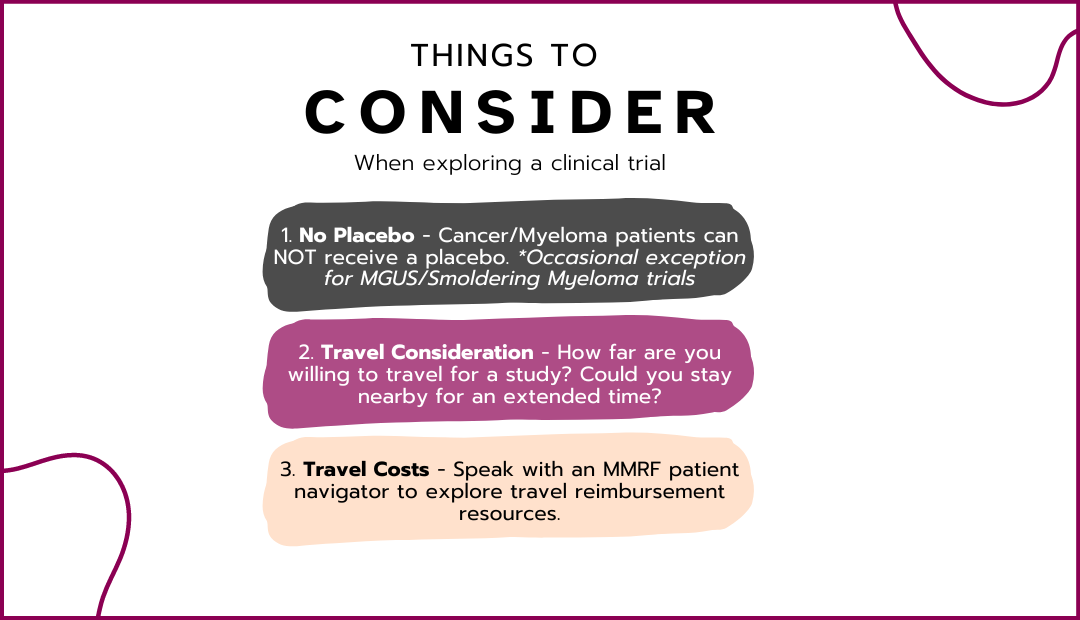Donor Lymphocyte Infusion After Allogeneic Hematopoietic Cell Transplantation for High-Risk Hematologic Malignancies
NCT05327023
Age 12 - 120
Sex Both
Phase Phase 1, Phase 2
Third Opinion Trial Synopsis
In this clinical study, researchers are exploring a new treatment approach for patients with a specific type of blood cancer. The study focuses on using a combination of therapies to improve patient outcomes. Here are some key points about the study:
- The treatment involves a unique combination of drugs that target the cancer cells in different ways, potentially leading to better results.
- Patients will receive the treatment in a controlled environment, allowing researchers to closely monitor its effects and side effects.
- This study aims to determine how effective the new treatment is compared to standard therapies currently available.
- Participants will be closely observed for their response to the treatment, including any changes in their condition and overall health.
- The study also looks at the quality of life for patients during and after treatment, which is an important aspect of cancer care.
Third Opinion AI Generated Synopsis
Trial Summary
Background: People with blood cancers often receive blood or bone marrow transplants. But even with these treatments, the risk of relapse is high. Researchers want to see if giving the transplant recipient an infusion of lymphocytes (a type of white blood cell) from their transplant donor early after the transplant can reduce that risk. Objective: To learn if giving donor lymphocytes early after a transplant will help reduce the risk of relapse for people with certain blood cancers. Eligibility: Adults aged 18-65 with high-risk leukemia, lymphoma, myelodysplastic syndrome, or multiple myeloma that does not respond well to standard treatments and/or has a high risk of relapse. Healthy potential bone marrow and lymphocyte donor relatives aged 12 and older are also needed. Design: Participants will be screened with: Physical exam Blood and urine tests Spinal tap Eye exam Dental exam Heart and lung tests Imaging scans. A radioactive substance may be injected in their arm if a PET scan is needed. Bone marrow aspiration and biopsy Some screening tests will be repeated during the study. Participants will stay at the NIH hospital for about 4 weeks. They will receive a central venous catheter. They will get chemotherapy and other drugs starting 6 days before transplant. Then they will have their transplant. They will receive donor white blood cells 7 days later. They will give blood, bone marrow, urine, and stool samples for research. They must stay near NIH for at least 100 days after transplant. Participants will have periodic follow-up visits for 5 years. Healthy donors will have 2-3 visits. They will give blood, bone marrow, white blood cells, and stool samples for research. Participation will last for 5 years....
Background: People with blood cancers often receive blood or bone marrow transplants. But even with these treatments, the risk of relapse is high. Researchers want to see if giving the transplant recipient an infusion of lymphocytes (a type of white blood cell) from their transplant donor early after the transplant can reduce that risk. Objective: To learn if giving donor lymphocytes early after a transplant will help reduce the risk of relapse for people with certain blood cancers. Eligibility: Adults aged 18-65 with high-risk leukemia, lymphoma, myelodysplastic syndrome, or multiple myeloma that does not respond well to standard treatments and/or has a high risk of relapse. Healthy potential bone marrow and lymphocyte donor relatives aged 12 and older are also needed. Design: Participants will be screened with: Physical exam Blood and urine tests Spinal tap Eye exam Dental exam Heart and lung tests Imaging scans. A radioactive substance may be injected in their arm if a PET scan is needed. Bone marrow aspiration and biopsy Some screening tests will be repeated during the study. Participants will stay at the NIH hospital for about 4 weeks. They will receive a central venous catheter. They will get chemotherapy and other drugs starting 6 days before transplant. Then they will have their transplant. They will receive donor white blood cells 7 days later. They will give blood, bone marrow, urine, and stool samples for research. They must stay near NIH for at least 100 days after transplant. Participants will have periodic follow-up visits for 5 years. Healthy donors will have 2-3 visits. They will give blood, bone marrow, white blood cells, and stool samples for research. Participation will last for 5 years....
from ClinicalTrials.gov
Locations & Contact
Fill out the form and to let the Multiple Myeloma Research Foundation know you are interested in this trial.
Contacts:

